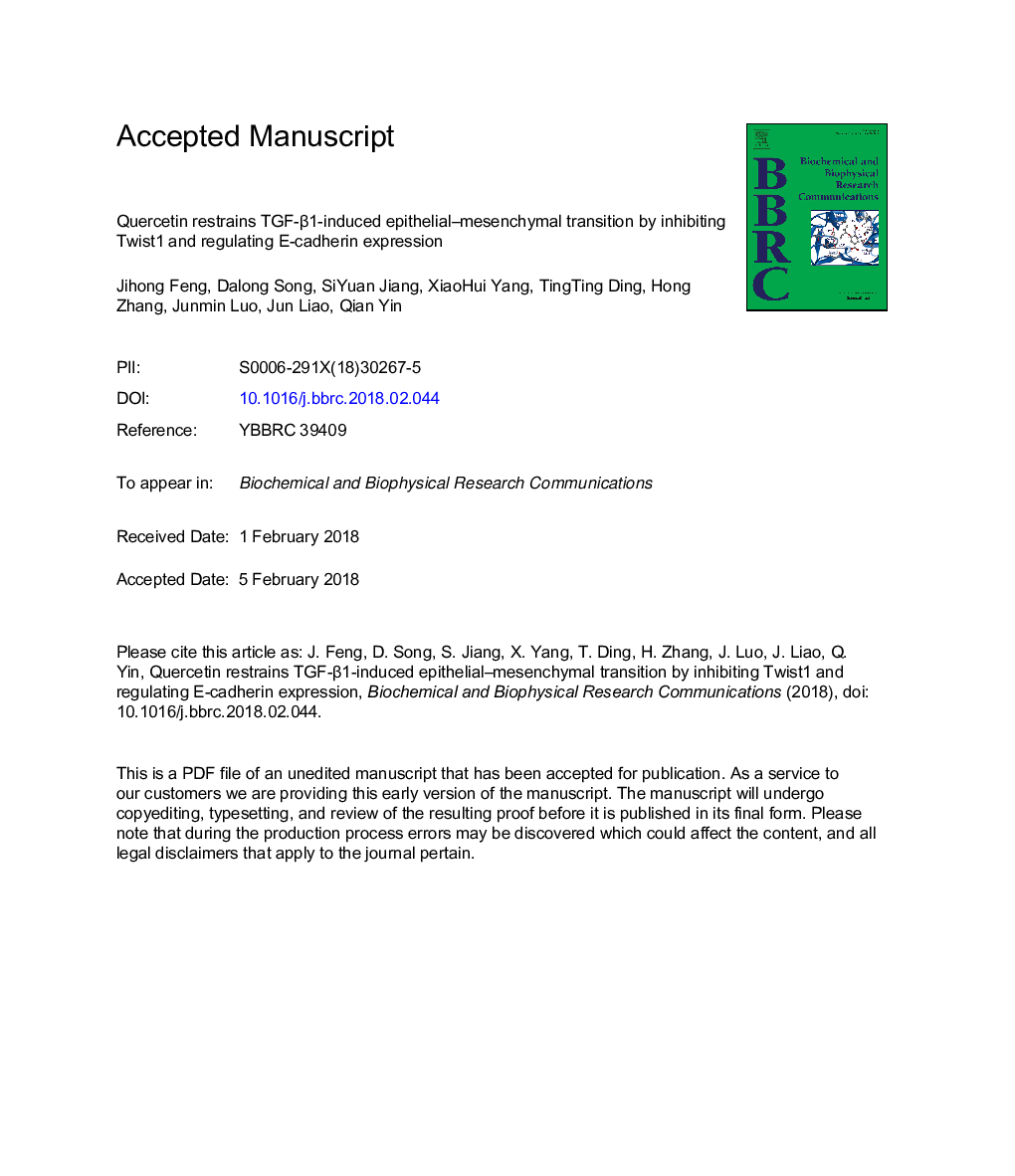| Article ID | Journal | Published Year | Pages | File Type |
|---|---|---|---|---|
| 8293723 | Biochemical and Biophysical Research Communications | 2018 | 21 Pages |
Abstract
Emerging evidence has indicated that transforming growth factor-beta 1 (TGF-β1) induces the epithelial-mesenchymal transition (EMT) in cancer cells, thus promoting their motility and invasiveness. Quercetin, a member of the polyphenolic flavonoid family, has been reported to display anticancer activity against a broad range of cancer cell types. Indeed, numerous studies have shown the cancer preventive effects and molecular mechanisms of quercetin in vitro using diverse cell model systems. However, the potential effect of quercetin on EMT remains unclear. In this study, we identified a unique function of quercetin in inhibiting the EMT process induced by TGF-β1. In particular, quercetin rescued the morphological changes and EMT-like phenotypes in TGF-β1-activated SW480â¯cells, and this inhibition of TGF-β1-induced EMT was mediated via the suppression of Twist1 expression. In addition, quercetin strongly suppressed TGF-β1-induced invasion of SW480â¯cells. Thus, quercetin may be considered a novel therapeutic agent for the treatment of patients with refractory cancer and for the prevention of the metastatic cascade initiated by EMT.
Keywords
Related Topics
Life Sciences
Biochemistry, Genetics and Molecular Biology
Biochemistry
Authors
Jihong Feng, Dalong Song, SiYuan Jiang, XiaoHui Yang, TingTing Ding, Hong Zhang, Junmin Luo, Jun Liao, Qian Yin,
